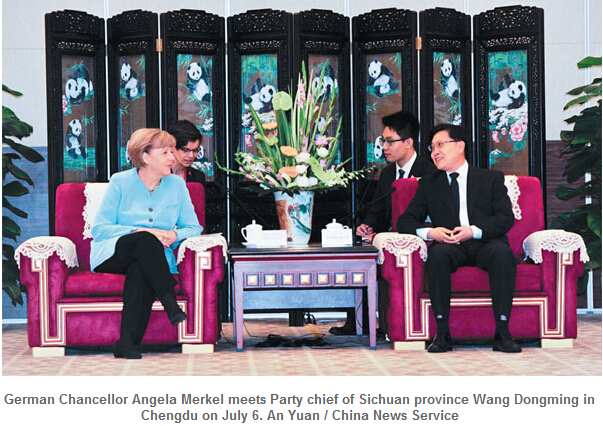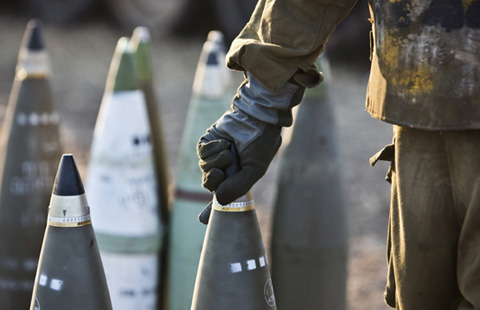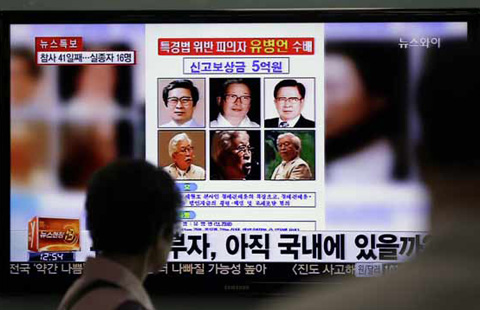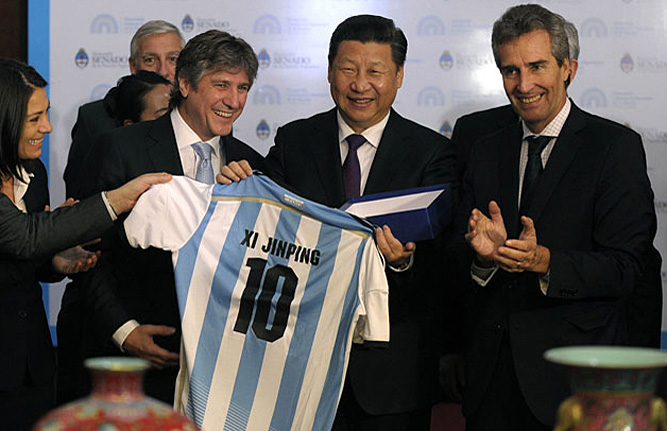Merkel says Chengdu has vital role
Updated: 2014-07-23 09:13
(China Daily)
|
|||||||||||

German Chancellor praises city's approach toward efficient, sustainable development, adding it could last not just 10-20 years but much longer
German Chancellor Angela Merkel paid a whistle-stop visit to Chengdu on July 6, and singled out the western Chinese city as a place she and her government have been watching closely.
Speaking at an urbanization forum in the city, she said the western region has what she called its own "unique opportunity to play" in China's overall urbanization drive.
She added that the region does not have to rely on copying models from China's economically dominant eastern region, and instead should follow its own approach toward an efficient and sustainable development, which last not just 10 or 20 years but much longer.
"We have been paying close attention to changes in China, not only in its coastal regions, but also in the west," the chancellor said during her first visit to the capital of Sichuan province.
She also visited the FAW-Volkswagen assembly plant in Chengdu's Longquan district, 12 kilometers from the city center.
Merkel said energy efficiency and conservation remain central to German government policy and that enterprises from both countries should pursue opportunities to strengthen cooperation in the fields.
She stressed that although Chengdu is "a traditional old city, from another perspective it is young and modern".
She added that with an urbanization rate of just 45 percent, the city will face rapid changes as it tries to accommodate an additional 1 million migrants a year.
"Germany would love to help China, including Sichuan, deliver its overall urbanization development strategy."
The FAW-Volkswagen plant she visited is a joint venture between the Chinese state-owned automotive manufacturer FAW Group Corporation and the German-based Volkswagen Group. It manufactures Audi and Volkswagen passenger cars for sale in China. Merkel said she was impressed by the plant's own technology being used to cut energy consumption by 26 percent, and water use by 90 percent.
Merkel sat in a new Jetta sedan, the factory's flagship product, and asked questions about the car. She also visited the plant's training workshop.
Later she visited an agricultural produce market in the city, and enjoyed typical Sichuan food.
The comprehensive strategic partnership between China and Europe is now in its 10th year, and that has included significant investment by Germany in the country, not only in sustainable industries such as environmental protection and energy efficiency, but others, too, said Feng Zhongping, the vice-president of the China Institutes of Contemporary International Relations.
Germany is now Europe's largest investor in China, with its investment in the country growing 43 percent last year.
Chinese investment in Germany hit $830 million last year, an increase of 29 percent from 2012. Bilateral trade in 2013 reached $161 billion.
Zhao Junjie, a European studies expert at the Chinese Academy of Social Sciences, added: "Though the relationship has been checkered over the past decade, there is still a strong willingness to enhance ties."
Zhao said this explained the frequency of visits this year between top officials of Europe's largest economy and the world's second-largest economy, and why political trust is constantly being strengthened.
Jia Xiudong, a senior international affairs researcher at the China Institute of International Studies, said that Merkel's choice of Chengdu for the first leg of her China trip underlines Germany's great interest in the province.
"Western countries previously paid relatively little attention to Sichuan and other regions in the west, but Sichuan's fast development has attracted their interest," he said.
"The strategy of China's new leadership to intensify the development of western regions makes them see more business opportunities in that part of the country."
Chengdu already has strong relations with German investors.
By the end of last year, the city's foreign affairs office confirmed 6.8 billion yuan ($1.1 billion; 805 million euros) worth of direct investment from German enterprises, while the total trade volume between the two sides had reached $1.5 billion.
The office added there were plans already in place to establish an industrial park that will target small and medium-sized German investors.
Zhao Yun, the chairwoman of the British Chamber of Commerce Southwest China, said Chengdu's location -in the heart of the west of the country - makes it enormously attractive to overseas companies, as does its abundant workforce and the support of the local government.
German Ambassador to China Michael Clauss added: "More than 98 percent of German companies are small and medium-sized. Many are eager to invest in China, and their advanced technologies can help China upgrade its industrial system."
Meng Hong, a researcher at Renmin University in Beijing, said Germany has had Chengdu on its radar for a long time, pointing out that it set up a consulate in the southwestern city in early 2004, and since then more than 160 German enterprises have opened offices there, including chemical giant BASF.
Martin Brudermuller, BASF's deputy chairman, said the Chinese government's preferential economic policies aimed at developing western areas "have been very attractive to overseas investors".
Chengdu has shown its strengths in areas such as the automotive, IT and consumer sectors, which mirror many of Germany's key industrial sectors, he said. "I'm not surprised that many world-famous enterprises have opened branches in Chengdu."
Yu Jianwei, executive dean of the Institute of Economic Development at Sichuan University, said frequent political communication and business investment from European countries was no coincidence, and illustrated that Chengdu has become an important springboard for European counties seeking to do business in China's western areas.
Zhou Wa and Peng Chao contributed to the story.
Contact the writers at qiubo@chinadaily.com.cn and liyu@chinadaily.com.cn
Hot Topics
Wei Guirong drives his granddaughters from kindergarten on his home-made three-wheeled vehicle in Luorong county, Liuzhou city of Guangxi Zhuang autonomous region, on May 19.
Editor's Picks

|

|

|

|

|

|






